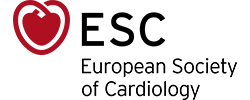
STEP this way for the last of our tweetorials covering #ESCCongress @escardio Looking at a trial of intensive blood pressure control in older adults with hypertension
First...step aside to a different STEP trial – Semaglutide in Obesity – our last tweetorial on this was very popular – have a look!
https://twitter.com/cardiomet_CE/status/1412739840349777931?s=20
Now step forward to this tweetorial on BP lowering…
Blood pressure targets for older adults have always been a balance between appropriate intensification to reduce CV events and complications whilst avoiding the adverse events associated with hypotension (as well as polypharmacy and medication side effects)
In the UK recent NICE guidelines suggest in those over 80yrs old a cut off of 150/90 nice.org.uk/guidance/ng136… 

So a lack of clarity – risks, benefits, patient preference, multimorbidity all play a part and of course individualized targets are important.
No discussion on BP targets and thresholds is complete without running into the SPRINT Trial….
This trial was designed to understand the optimal BP targets to reduce CV mortality and morbidity (in those without diabetes)…nejm.org/doi/full/10.10…
Just under 10,000 patients randomized to either <120 systolic BP (intensive) or <140 systolic BP
The primary composite outcome was myocardial infarction, other acute coronary syndromes, stroke, heart failure, or death from cardiovascular causes 🫀🧠☠️
The primary composite outcome was myocardial infarction, other acute coronary syndromes, stroke, heart failure, or death from cardiovascular causes 🫀🧠☠️
SPRINT found that intensive SBP target of <120mmHg vs <140mmHg resulted in significant reduction in primary outcome…with a reduction in CV and all cause mortality 



The benefits of a 10mmHg drop in systolic BP have also been shown from metanalyses with SBP<130mmHg found to be favourable
thelancet.com/journals/lance…
thelancet.com/journals/lance…

However...
There was an increased risks of hypotension, syncope, AKI and electrolyte abnormalities including ED visits in the SPRINT trial 

As we see in diabetes, intensive treatment has it’s benefits but at the risk of adverse events….these can be magnified in the older adult
Hence the need for a dedicated trial looking at intensive BP lowering in an older adult population to not only assess CV benefit but also safe reduction without adverse effects…..step forward STEP
The STEP trial was designed to look at older adult population to determine if a more intensive SBP target was beneficial 

🇨🇳Chinese patients 60-80yrs old with hypertension
Intensive treatment ➡️ SBP 110mmHg to <130mmHg
vs
Standard treatment ➡️ SBP 130mmHg to <150mmHg
Intensive treatment ➡️ SBP 110mmHg to <130mmHg
vs
Standard treatment ➡️ SBP 130mmHg to <150mmHg
The primary outcome was a composite of
➡️stroke
➡️acute coronary syndrome (acute myocardial
infarction and hospitalization for unstable angina)
➡️acute decompensated heart failure
➡️coronary revascularization
➡️atrial fibrillation
➡️death from cardiovascular causes
➡️stroke
➡️acute coronary syndrome (acute myocardial
infarction and hospitalization for unstable angina)
➡️acute decompensated heart failure
➡️coronary revascularization
➡️atrial fibrillation
➡️death from cardiovascular causes
Baseline characteristics ⬇️
More female than male participants ✔️
Good number of adults >70yrs ✔️
BMI mostly 25-26 ✔️
Low prevalence of renal dysfunction
More female than male participants ✔️
Good number of adults >70yrs ✔️
BMI mostly 25-26 ✔️
Low prevalence of renal dysfunction

Over the trial follow up...
Mean BP in intensive treatment 126.7mmHg
Mean BP in standard treatment 135.9mmHg
Mean BP in intensive treatment 126.7mmHg
Mean BP in standard treatment 135.9mmHg

The outcomes…
33% ⬇️ stroke
33% ⬇️ ACS
73% ⬇️ HF
28% ⬇️ MACE
28% ⬇️ CV mortality
33% ⬇️ ACS
73% ⬇️ HF
28% ⬇️ MACE
28% ⬇️ CV mortality
Impressive findings even if we knew some of this from previous studies looking at BP lowering.
BUT...what about those all important side effects, especially in this older age group...
BUT...what about those all important side effects, especially in this older age group...
So....
➡️in an older adult population
➡️with hypertension
➡️in China 🇨🇳
➡️using office or home (with 📱 app) BP monitoring
🫀🧠Cardiovascular benefits were seen with no significant adverse events❗️
➡️in an older adult population
➡️with hypertension
➡️in China 🇨🇳
➡️using office or home (with 📱 app) BP monitoring
🫀🧠Cardiovascular benefits were seen with no significant adverse events❗️
A few points....
➡️ specific population and geographical area ?generalisable
➡️ Framingham risk scores used overstimate risk in Chinese adults
➡️ No mention of frailty status
➡️ QOL assessments would also add to this study
➡️ specific population and geographical area ?generalisable
➡️ Framingham risk scores used overstimate risk in Chinese adults
➡️ No mention of frailty status
➡️ QOL assessments would also add to this study
Nonetheless, a large trial with good evidence...so, what are your thoughts?
In older adults when looking at BP management, I will aim for...
In older adults when looking at BP management, I will aim for...
A final question:
In the STEP trial, in older adults, a 26% reduction in primary composite outcome was achieved using what SBP targets?
In the STEP trial, in older adults, a 26% reduction in primary composite outcome was achieved using what SBP targets?
And that concludes our takeover on key learning points from #ESCcongress we hope you enjoyed it and enhanced your 🧠. We look forward to next time but until then keep safe, follow us @GoggleDocs or youtube.com/c/GoggleDocs
So a REMARKABLE job by @GoggleDocs comes to a conclusion with Mr. Bean, and the home team from @cardiomet_CE has returned to the control room at #Cardiometabolic Central to offer our intrepid followers their well-earned link to CE/#CME.
Reminders: #physicians #nurses #pharmacists are ALL eligible. The credit-claim is pretty painless and the certificate counts 🇺🇸🇨🇦🇬🇧🇪🇺. Just go to cardiometabolic-ce.com/cardiorenal10. And finally, FOLLOW US for your only source of joint accredited, serialized CE/#CME in this space!
Again, that link is cardiometabolic-ce.com/cardiorenal10. And it's
• • •
Missing some Tweet in this thread? You can try to
force a refresh



















